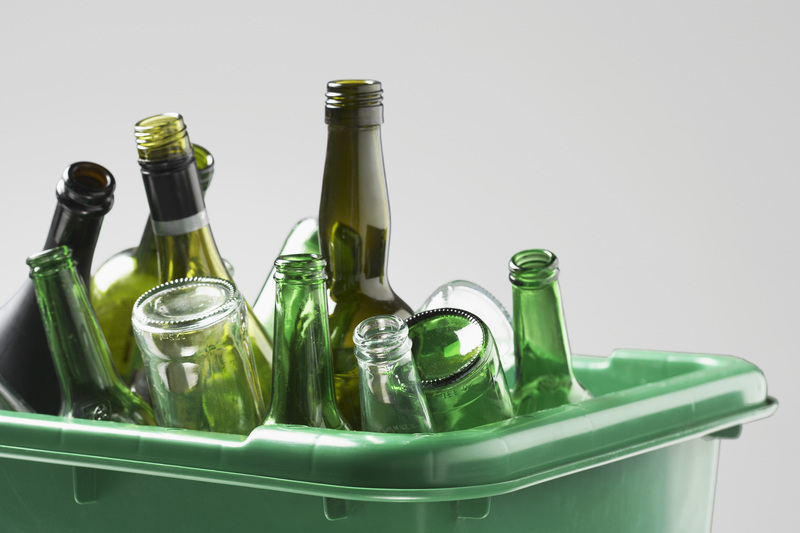Navigate the World of Hard Rubbish: Disposal Instructions
Properly disposing of hard rubbish can often seem like a daunting task. However, with the right information and guidance, you can successfully navigate the world of hard rubbish disposal. Understanding how to dispose of bulky and hazardous waste not only keeps our environment clean but also promotes community safety. In this comprehensive guide, we will explore efficient methods, tips, and instructions to make hard rubbish disposal as easy as possible.
Understanding What Constitutes Hard Rubbish
Before diving into disposal instructions, it's essential to understand what hard rubbish includes. Hard rubbish typically comprises bulky items such as:
- Old furniture like sofas and beds
- Household appliances, including fridges and washing machines
- Electronic waste such as televisions and computers
- Garden equipment and tools
- Building materials and other large waste items
Each of these categories can have specific disposal guidelines, which we will address in more detail below.
Why Proper Disposal of Hard Rubbish Matters
Proper disposal of hard rubbish is crucial for several reasons:
- Environmental Impact: Improper disposal can lead to pollution and harm to wildlife.
- Public Health: Accumulated waste can become a breeding ground for pests and diseases.
- Legal Compliance: Many places have regulations and fines for improper disposal.
By following correct disposal guidelines, you contribute positively to both the community and the environment.

Steps for Efficient Hard Rubbish Disposal
1. Assess Your Rubbish
Begin by categorizing your rubbish. Recognize items that might be recycled, reused, or need special handling. This assessment assists in choosing the right disposal method and complying with local regulations.
2. Check Local Council Regulations
Different regions have specific rules for hard rubbish collection. Contact your local council or visit their website for detailed information on:
- Collection schedules: Find out when the next hard rubbish collection is scheduled.
- Drop-off locations: Many municipalities have designated drop-off points for large items.
- Accepted items: Confirm what items are accepted in your area.
Adhering to these rules ensures your hard rubbish is collected efficiently and legally.
3. Consider Donation or Reuse
Before discarding items, consider their potential for reuse. Items in good condition can be donated to charities or given away through online platforms. Not only does this help others, but it also reduces the amount of waste heading to landfills.
4. Safe Disposal of Hazardous Waste
Certain items, such as electrical or chemical waste, are classified as hazardous and require special attention. Ensure these are disposed of at appropriate facilities to avoid environmental damage.
5. Professional Waste Removal Services
For those unable to dispose of rubbish due to its size or volume, professional waste removal services offer assistance. These services handle heavy lifting, transport, and ensure that items are disposed of responsibly.
Environmental Benefits of Proper Hard Rubbish Disposal
Effective hard rubbish disposal can lead to several environmental benefits:
- Reduction in Landfill Waste: Proper sorting and recycling help decrease landfill usage.
- Resource Conservation: Reusing and recycling materials conserves natural resources by cutting down the need for raw materials.
- Pollution Prevention: Avoiding improper dumping prevents toxins from entering the ecosystem.
Each individual's contribution makes a significant impact, enhancing the quality of our shared environment.

Tips for Seamless Hard Rubbish Disposal
- Plan Ahead: Don't wait until the last minute to organize your hard rubbish. Planning ensures a smoother disposal process.
- Stay Informed: Keep updated with changes to disposal regulations and collection times by regularly checking local council updates.
- Utilize Community Resources: Leverage community swap meets or second-hand events to give your items a second life.
These strategies not only ease the disposal process but also enhance sustainability efforts within your community.
Conclusion: Make a Difference by Handling Hard Rubbish Responsibly
Navigating the world of hard rubbish doesn't have to be overwhelming. By understanding the nature of your waste and staying informed of regulations, hard rubbish disposal can be handled with minimal stress and maximum efficiency. Remember, each old appliance discarded correctly or piece of furniture donated contributes to a healthier environment and community. Embrace responsible disposal practices, ensuring future generations inherit a cleaner, more sustainable world.